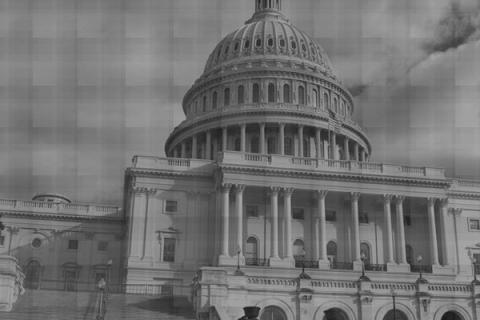Book review: The Tea Party Goes to Washington by Rand Paul with Jack Hunter
In the early days of Rand Paul's campaign, back when it was just an exploratory committee, there was only Rand and his campaign spokesman-- a tall, well-mannered, southern man in his early thirties who would tell me how badly our country needed someone like Rand Paul in a position of political leadership. He donated his meager salary right back to Rand Paul's fledgling exploratory committee each month.
Back then the Kentucky ophthalmologist's prospects looked rather bleak. In retrospect, it's all too easy to view Rand Paul's election to the United States Senate with some aura of historical inevitability, but the truth is that no one was at all certain how far Rand would go back in May of 2009, perhaps least of all Rand, who writes in his new book that he told his wife not to worry too much about how his foray into politics would affect their family-- he probably wouldn't win.
That is the magic of both Rand Paul and the Tea Party movement he exemplifies, a certain down-to-earth charm that speaks to every day Americans exactly where they are. Even as cerebral as Rand-- like his father, Congressman Ron Paul-- can be, quoting obscure economists from the "Austrian school" of thought and recommending the works of Russian novelist Dostoevsky in the pages of his new book, there's something incredibly down-to-earth about the way Rand Paul speaks and writes. He just doesn't sound like a politician.
Most of what Paul says resonates with the vast swath of American workers and voters, yet both the substance and style of his approach are considered far too daring by most other politicians. Instead of vague platitudes, Paul offers a specific and detailed diagnosis of what went wrong with the American government along with a clear, common-sense, easy-to-understand prescription for successful reform:
"If the Tea Party can be characterized in a single sentence it is this: We are concerned about the massive level of the debt and worried about passing it to younger generations."
The new U.S. Senator spends much of the book explaining how the national debt got so badly out-of-control, boldly devoting his longest chapter of all to foreign policy and the need to cut waste out of the defense budget, arguing that the national debt is the number one biggest threat to America's national security. As Tom Woods notes at The American Conservative:
"[Rand Paul] has no patience for the messianic rhetoric by which the Iraq War was sold, and argues that the neoconservative foreign-policy program is not conservative at all... when was the last time we heard such a thing from a U.S. senator who has the ear of much of the right-leaning public?"
Perhaps most striking, however, is not the book's boldness and specificity on matters of public policy, but how much and how convincingly it defends Rand Paul's father, Ron Paul. Whether or not Paul and Hunter consciously wrote the book with this purpose in mind, it functions suspiciously well as campaign material for a potential Ron Paul presidential bid in 2012.
Through anecdotes about Ronald Reagan and Barry Goldwater-- and the establishment Republicans who opposed them-- The Tea Party Goes to Washington draws a line in the sand between true conservatism and its counterfeit, and goes to great lengths to prove that historically, Ron Paul is the heir apparent of true conservatism, while his many potential opponents in the 2012 Republican primary-- like Newt Gingrich-- are merely stooges of the power-hungry, Republican-in-name-only establishment.
Not only does Rand Paul express his optimism that the Tea Party is rekindling the true spirit of Jeffersonian conservatism in the Republican Party, but he believes that it will end up reforming the entire federal system to create something more humble, more efficient, more like what the Founding Fathers had envisioned. He says the Tea Party has not been and cannot be co-opted by the Washington establishment. On the contrary, Rand Paul believes that the Tea Party is already starting to co-opt Washington.

